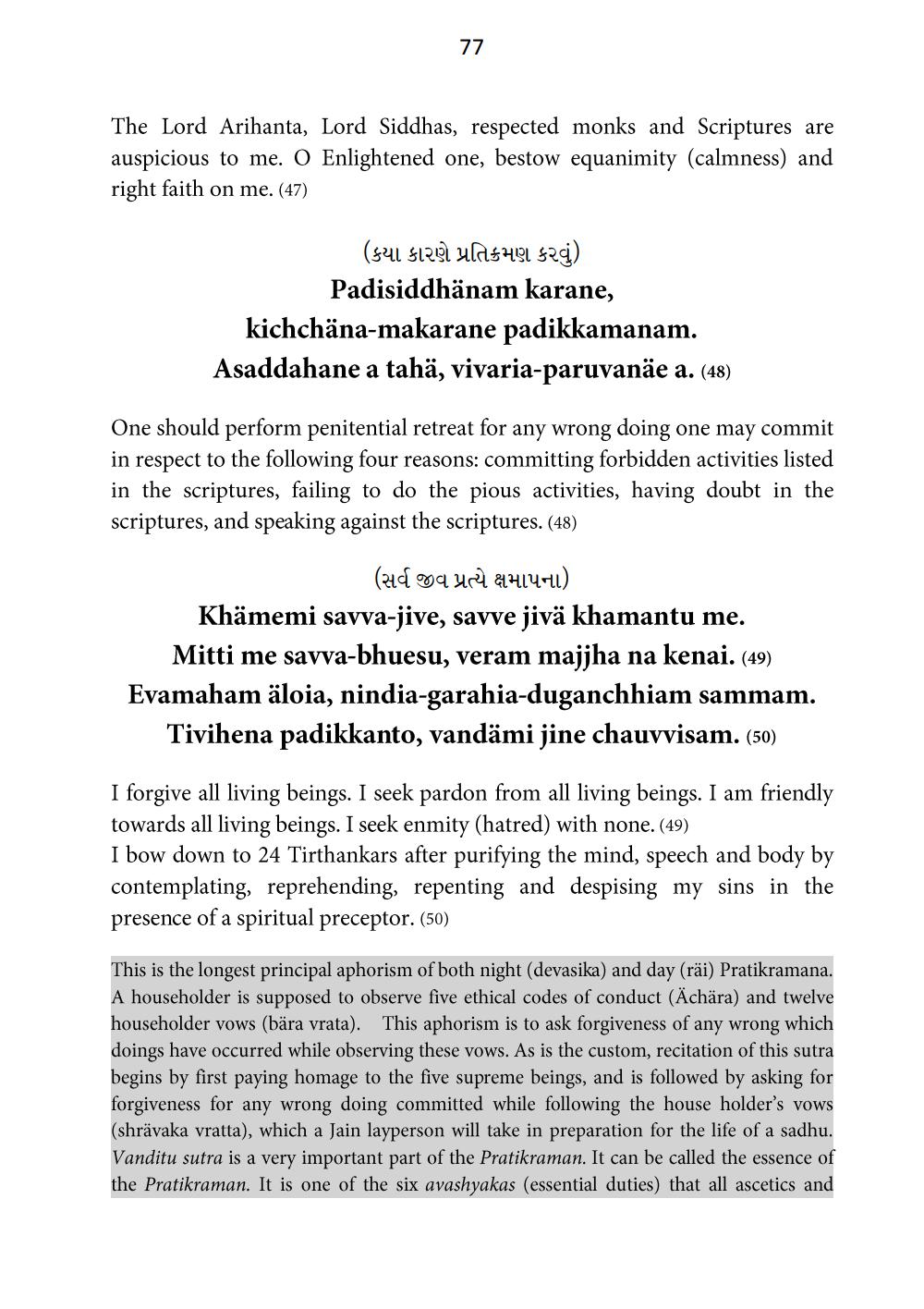________________
77
The Lord Arihanta, Lord Siddhas, respected monks and Scriptures are auspicious to me. O Enlightened one, bestow equanimity (calmness) and right faith on me. (47)
(કયા કારણે પ્રતિક્રમણ કરવું) Padisiddhänam karane,
kichchäna-makarane padikkamanam. Asaddahane a tahä, vivaria-paruvanäe a. (48)
One should perform penitential retreat for any wrong doing one may commit in respect to the following four reasons: committing forbidden activities listed in the scriptures, failing to do the pious activities, having doubt in the scriptures, and speaking against the scriptures. (48)
(સર્વ જીવ પ્રત્યે ક્ષમાપના)
Khämemi savva-jive, savve jivä khamantu me.
Mitti me savva-bhuesu, veram majjha na kenai. (49) Evamaham äloia, nindia-garahia-duganchhiam sammam. Tivihena padikkanto, vandämi jine chauvvisam. (50)
I forgive all living beings. I seek pardon from all living beings. I am friendly towards all living beings. I seek enmity (hatred) with none. (49) I bow down to 24 Tirthankars after purifying the mind, speech and body by contemplating, reprehending, repenting and despising my sins in the presence of a spiritual preceptor. (50)
This is the longest principal aphorism of both night (devasika) and day (räi) Pratikramana. A householder is supposed to observe five ethical codes of conduct (Ächära) and twelve householder vows (bära vrata). This aphorism is to ask forgiveness of any wrong which doings have occurred while observing these vows. As is the custom, recitation of this sutra begins by first paying homage to the five supreme beings, and is followed by asking for forgiveness for any wrong doing committed while following the house holder's vows (shrävaka vratta), which a Jain layperson will take in preparation for the life of a sadhu. Vanditu sutra is a very important part of the Pratikraman. It can be called the essence of the Pratikraman. It is one of the six avashyakas (essential duties) that all ascetics and




